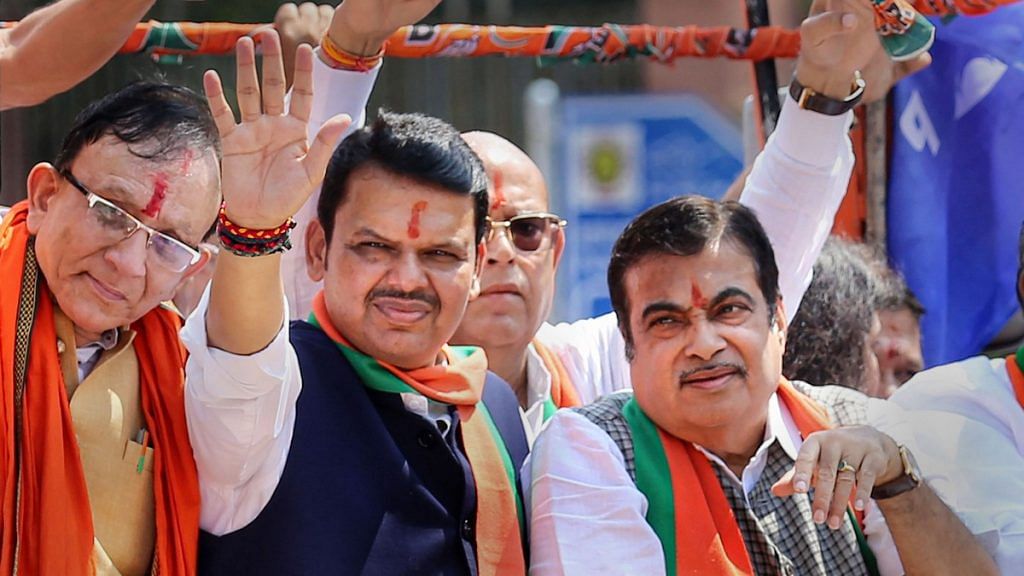New Delhi: The Bharatiya Janata Party (BJP) ceded space to the Congress on the home turf of Chief Minister Devendra Fadnavis, Union minister Nitin Gadkari and the RSS as the latter won two of the six assembly seats that fall under the Nagpur Lok Sabha constituency.
In 2014, the BJP had won all six seats — Nagpur South West, Nagpur South, Nagpur East, Nagpur Central, Nagpur West and Nagpur North (see graphic).
The parliamentary constituency of Nagpur is currently held by Gadkari.
Of the four seats won by the BJP in Nagpur, two were by a narrow margin. The BJP wrested Nagpur South with a vote-share of 43.62 per cent against the Congress’ 41.54 per cent. In Nagpur Central, the BJP’s vote-share stood at 46.37 per cent against the Congress’ 43.91 per cent.
Even Fadnavis, who represents Nagpur South West, won by a margin of 30,000, against a target of 1 lakh. His victory margin was 58,942 in 2014.
Also Read: BJP has 16 dynast MLAs in Maharashtra — highest among all parties
‘Will carry out an analysis’
Right from Gadkari, to BJP president Amit Shah and Chief Minister Fadnavis, who represents Nagpur South West, senior party leaders had held a number of campaign rallies in the region in the run-up to the election.
The BJP campaign was centred on the Modi government’s decision to scrap Article 370, Bharat Ratna for Veer Savarkar, and the Fadnavis government’s push for infrastructure development.
Meanwhile, the opposition, especially the Nationalist Congress Party (NCP) of Sharad Pawar, raised the issue of agrarian distress, farmer suicides and the economic slowdown.
While the BJP blamed a reduced voter turnout for its shrunken victory margins, the Congress credited the party’s “outreach programme” for its gains.
“Our campaign might not have been visible, but we managed to reach people. Right from having booth-level committees to carrying out our outreach programme, we managed to raise real issues and it resonated among the voters,” said Congress secretary Ashish Dua, who is in charge of the Vidarbha and Mumbai regions.
Dua noted that of the 12 seats in Nagpur district, which includes Nagpur rural, the BJP had won six seats, down from 11 in 2014. The Congress won four, while the remaining two went to the NCP and an Independent.
The BJP said it would analyse its performance once celebrations die down.
“In 2009, we had won three seats, in 2014, six, and now it is four. Right now is the time to celebrate, and then we will carry out an analysis as to what happened and why,” said Sandeep Joshi, the election in-charge in Fadnavis’ team.
“Overall voting was less too and that would have impacted our performance. We will have to see what damage NOTA (none of the above) caused, so it will take at least 15 days,” he added.
Also Read: The hidden gains for Shiv Sena in Maharashtra assembly results
